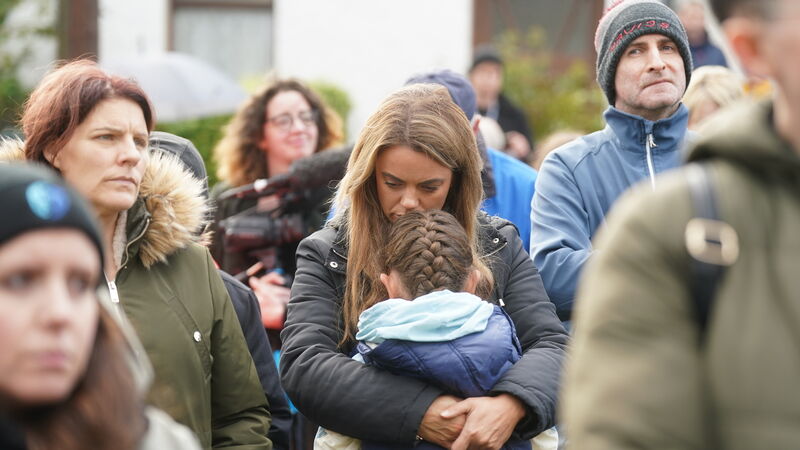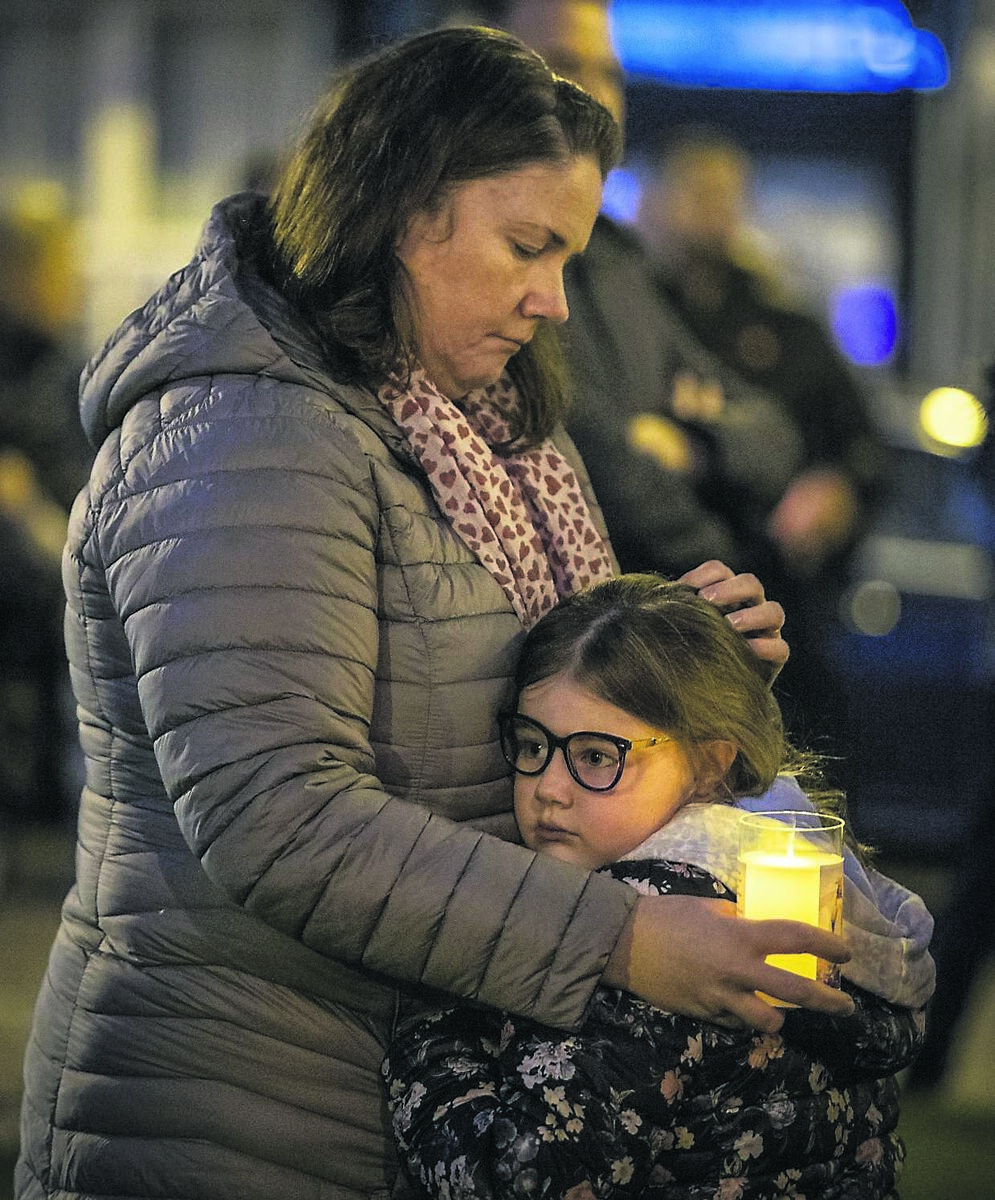Creeslough: We’re all hugging our own a little tighter today

Louise Devine with her daughter Lilly Hegarty 8, at a vigil in Milford, Co Donegal for the victims of the explosion in Creeslough.
The unspeakable loss of 15-year- old schoolgirl Ann Lovett, who died giving birth to her stillborn son in a grotto in Granard, Co. Longford, in 1984. The shocking death of two families, ten adults and children, in a fire at a halting site in Carrickmines in 2015. The murder of 29 people and injury of more than 200 by an IRA car bomb on a busy Saturday afternoon in Omagh in August, 1998.
All places that will be forever associated with deep tragedy.
Sadly, the village of Creeslough in Co. Donegal has been added to this sorry list, joining other communities rent asunder by a major trauma, and will have to start the hard work of keeping going when the world has fallen apart.
As details of the explosion at the Applegreen service station emerged over the weekend, it became clear that there would be no good news.
Watching social media to find out what happened is not a voyeuristic urge, it is an urge to acknowledge who the victims are and the pain and loss of the families dealing with the worst news. It is also a recognition of “there but for the grace of God go I”.
We all proceed through life with an appreciation of the risks involved in living. We know life is fragile and maybe we worry about a car crash or a serious illness, but we rarely worry about something as mundane as popping into a shop for a Friday treat.
You don’t have to be a parent of a young child to feel affected by the story of little girl Shauna shopping for a birthday cake for her mum. The long road of grief ahead for Shauna’s mother is unthinkable, every missed milestone of the life that lay ahead for her daughter, every birthday tarnished by her enormous loss.
Along with the stories of the victims and the reasons they came to be in the wrong place at the wrong time, were the stories commending the rescuers who rushed in to pull people out.
When your faith in the universe is rocked by a senseless incident like this, there is comfort in knowing the depth of kindness and dedication in the country.

The antidote to despair is action and emergency services worked tirelessly to rescue and recover people from the rubble. That work doesn’t come without an emotional cost.
While working on a documentary recently, I spoke with members of the Garda Technical Bureau and got an insight to the challenging situations they encounter day in, day out. You will never complain about work again when you hear a crime scene photographer describe the job of capturing every minute, gruesome detail of a violent scene.
Unfortunately, Donegal emergency personnel are no strangers to tragic incidents at scale and Creeslough reminded me of the death of eight people in a two-car crash in Inishowen back in 2010 and the outpouring of national grief at the time for the senseless loss of life.
Vicarious trauma is an occupational hazard for people working in the gardaí, emergency services or any profession that continually works with victims of trauma or violence. Dealing with the aftermath of violence is not a task many of us could stomach and a change in the world-view of people who deal with these hard jobs is inevitable.
Some people can be positively affected and appreciative of their own circumstances; others might become cynical or fearful about what life can throw up.
Continual exposure to traumatic events can inflict invisible wounds and emotional trauma, manifesting in problems ranging from difficulty sleeping to chest pains to hypervigilance and anxiety.
Adverse childhood experiences (ACEs) are traumatic events that can happen to children under-17 that can negatively impact education, job opportunities, and earning potential in the future, as well as lead to chronic health problems, mental illness, and substance abuse.
Homelessness, the death of a parent, bullying, emotional, physical or sexual abuse are all ACEs with potential long-term consequences.
The idea that the body stores trauma which can manifest itself in different physical and emotional ways is becoming better understood, as is the concept of intergenerational trauma. The passing on of trauma from one family, or community, or country, to the next generation may lie in changes to the genes of the older generation caused by the stress and deprivations of war or famine or other traumatic events.
The Troubles in Northern Ireland, the Irish Civil War, and the Famine are all large-scale deeply traumatic events that scarred people for life and we will never understand the full repercussions.
It is so important that in the coming weeks, months and years, the families of the victims, the community of Creeslough, and the emergency services who led rescue efforts are given strong support to help them process the huge trauma that has befallen their once quiet and anonymous village.







 App?
App?




